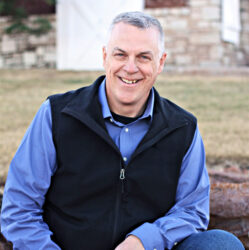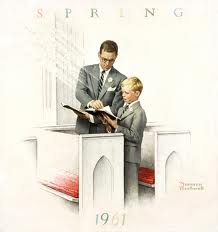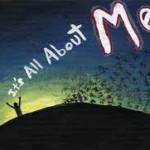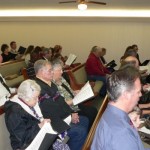“Joy to the World, the Lord has come!” WAIT! It’s early June, what in the world are we doing talking about (not to mentioning singing about) a Christmas Carol? Save this song for December, along with “O Little Town of Bethlehem” “Away in a Manger” or “Silent Night”. But t hink about it; when was the last time you sang this song outside of the winter months? On a beautiful Sunday morning in early June, we sang this song as we opened our worship service. Some might do a double take and ask the question, ‘Is that appropriate; shouldn’t this song be reserved for another time and day?’
hink about it; when was the last time you sang this song outside of the winter months? On a beautiful Sunday morning in early June, we sang this song as we opened our worship service. Some might do a double take and ask the question, ‘Is that appropriate; shouldn’t this song be reserved for another time and day?’
Before you answer that question read again the words from this Issac Watt’s classic:
“Joy to the world, the Lord is come! Let earth receive her king. Let every heart prepare Him room, and heaven and nature sing. Joy to the earth, the Savior reigns! Let men their songs employ, while fields and floods, rocks, hills and plains repeat the sounding joy. No more let sin and sorrow grow, nor thorns infest the ground; He comes to make His blessings flow far as the cruse is found. He rules the world with truth and grace and makes the nations prove; the glory of His righteousness and wonder of His love.”
Did you see the reference to the birth of Christ? “…the Lord is come…” This is why we have labeled this a Christmas song to be sung in December. But does December have a Biblical lock on the birth of Christ? Traditionally we see December as the time of year when Christ was born, but where is there evidence in scriptures to support this claim? If the truth be known it was more likely to have been in the spring or early summer that Mary gave birth to Christ; but that’s another study. We have to ask ourselves what the message is from the songs we sing, even the “Christmas songs”. The message from this old spiritual song is obvious; we hear it resounding throughout the Psalms; “But let all who take refuge in You be glad, let them ever sing for joy…” (5:11) “The meadows are clothed with flocks and the valleys are covered with grain; they shout for joy, yes, they sing.” (65:13) “Praise the Lord from the earth… all mountains and all hills” (Psalm 148: 7, 9)
If you desire to praise God, and if you intend to bring glory to Him through your songs, I encourage you to think about what you are singing and be sure you don’t just sing from traditional expectation. We should sing because of the joy we have in Christ. Praise be to God that He sent His Son…for without Him, we would be without Joy.










